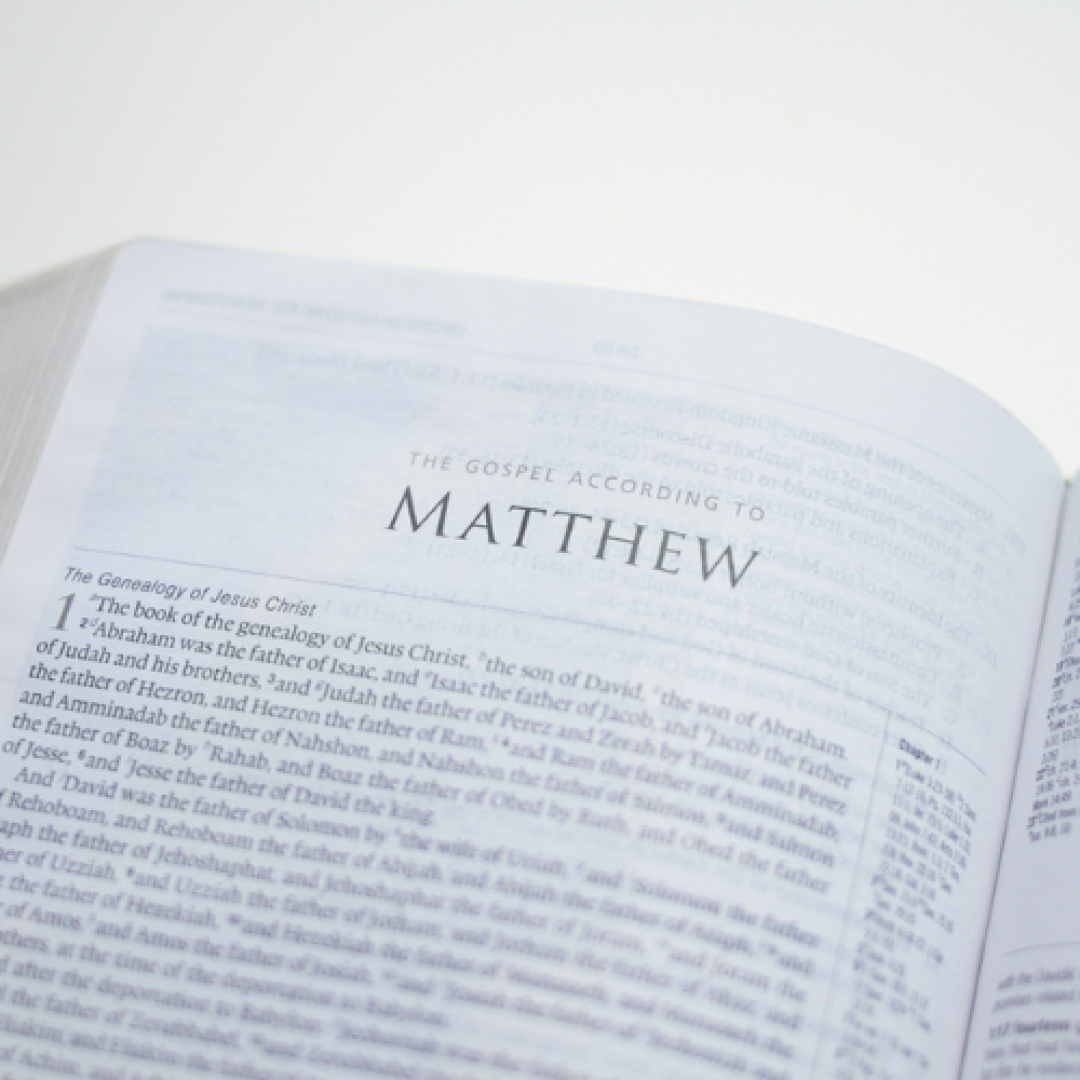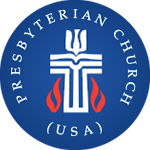
When I was a kid, I noticed that genealogy was one of my mother’s favorite hobbies. I did not care about it at all. Now as an adult I have started doing a little bit of genealogy as a hobby, picking up where my mother left off when she died in 1996. I have found all sorts of interesting things. On my Mom’s side we can track our heritage back to Edward Bruce, Earl of Cassick and the last High King of Ireland (in addition to being Robert the Bruce’s younger brother). Some of the census records show the occupation of my ancestors. Some of them show much more shameful things such as the slaves they owned or the plot of the Cherokee land they received after the Trail of Tears. I have found errors in other’s work. And there are surely errors in my work.
I am not an expert in genealogy, but I am just experienced enough to know that the stories of peoples’ lives are always more complicated than they seem on the surface. With a humble heart, I turn to the genealogies of Jesus.
Both the Gospel of Matthew and the Gospel of Luke have genealogies of Jesus in them. They are not identical, which is actually comforting. If they were, collusion between the writers of the Gospels would be much more likely. The differences also signify what the writer of the account is trying to tell us. Today, I am studying the Genealogy of Jesus found in Mathew 1:1-17. I will copy the full text below at the end of the blog. We will consider Luke some other time.
Matthew’s account is summarized in verse 17 saying, “So all the generations from Abraham to David are fourteen generations; and from David to the deportation to Babylon, fourteen generations; and from the deportation to Babylon to the Messiah, fourteen generations.”
This summary teaches us that Matthew thought the world was due for another major and mighty act of God. This passage lets us know that the order of events we should pay attention to are: The Covenant with Abraham, the Passover & Exodus, the establishment of the monarchy, the Kingdom divided, the deportation of the people, their return, and now the receiving of the Messiah. In other words, in Jesus, the story continues. This makes sense as we know the first original audience was other Jews to make the case that Jesus is the promised Messiah.
Another important component of the genealogy is to establish Jesus’ lineage to other people in the Bible we know to be important characters. There is Abraham, Isaac, and Jacob. There is King David and King Solomon. The prophecy is that the messiah would come from the “stump of Jesse.” Jesse was David’s father. And, unlike anyone else in the genealogy besides Jesus, David gets a title next to his name- King David.
There are also some questionable characters in the genealogy as well. Tamar dressed up as a “harlot” to seduce Judah and had two sons. One of those sons, Perez is in the bloodline that eventually produces Joseph. Salmon has a baby (Boaz) with Rahab, the “Harlot of Jerico” from Joshua’s siege on Jerico. Then Boaz takes Ruth, the Moabite. And Moabites were not people you wanted in your family tree.
By the time we trace the lineage of Jesus all the way back from Abraham, we find some familiar themes for anyone who has worked on genealogy. Some of the information is questionable. The meta-narrative does not quite fit (it is not exactly 14 generations between big events, even if some people were not left out, which they were). There are heroes and questionable characters involved. The imprint of major historical events can be clearly seen in the people and the decisions that were made. Women are included in this genealogy, which was not typical of the time. To claim a Moabite (Ruth) is important because it hints that Jesus’ lineage is not exclusive to the “right kind of people.” And let us not forget the biggest one of all. Joseph is not the father by blood to Jesus, rendering the entire family tree moot for purposes of legitimizing Jesus as the new thing springing out of the stump of Jesse.
So, why should we care about the family tree of Jesus then? I believe Matthew is giving us a roadmap of God’s intervening, saving grace. God took moments, great and small, people of great importance and total nobodies, and produced a rich history of faithfulness.
The other thing we learn when we read between the lines is the power of God’s adoptive love. Just as Joseph adopts Jesus and becomes his earthly father, so Jesus takes each of us and adopts us into his family, of which he is the head. God’s claim on us and our claim on God has much less to do with bloodlines as it does with accepting the blessing of the inheritance. Once upon a time Jacob traded Esau a bowl of soup for his inheritance. We do not have to resort to anything so deceitful. By the power of the Holy Spirit, we are bound to God, and this bond is far stronger than water or blood.
The genealogy in Matthew is a great entry point for understanding the story into which Jesus was born, but it also tells us that just like any other genealogy, whether they are perfectly recorded or whether there are unexplained gaps, we are ultimately a product of the story we claim. And as followers of Christ, we can claim him as Lord, and as head of our households. Congratulations, brothers and sisters in Christ! You are now part of the new genealogy of Jesus. You are an adopted child, a child of God, and your recorded occupation is “Servant of the Lord.”
Grace and Peace,
Pastor Rob
Harrington, Daniel J. The Gospel of Matthew, by Daniel J. Harrington, vol. 1, The Order of St. Benedict, Inc., 2007, pp. 28–29. Sacra Pagina.
The Genealogy of Jesus the Messiah
1An account of the genealogy of Jesus the Messiah, the son of David, the son of Abraham.
2 Abraham was the father of Isaac, and Isaac the father of Jacob, and Jacob the father of Judah and his brothers, 3and Judah the father of Perez and Zerah by Tamar, and Perez the father of Hezron, and Hezron the father of Aram, 4and Aram the father of Aminadab, and Aminadab the father of Nahshon, and Nahshon the father of Salmon, 5and Salmon the father of Boaz by Rahab, and Boaz the father of Obed by Ruth, and Obed the father of Jesse, 6and Jesse the father of King David.
And David was the father of Solomon by the wife of Uriah, 7and Solomon the father of Rehoboam, and Rehoboam the father of Abijah, and Abijah the father of Asaph, 8and Asaph the father of Jehoshaphat, and Jehoshaphat the father of Joram, and Joram the father of Uzziah, 9and Uzziah the father of Jotham, and Jotham the father of Ahaz, and Ahaz the father of Hezekiah, 10and Hezekiah the father of Manasseh, and Manasseh the father of Amos, and Amos the father of Josiah, 11and Josiah the father of Jechoniah and his brothers, at the time of the deportation to Babylon.
12 And after the deportation to Babylon: Jechoniah was the father of Salathiel, and Salathiel the father of Zerubbabel, 13and Zerubbabel the father of Abiud, and Abiud the father of Eliakim, and Eliakim the father of Azor, 14and Azor the father of Zadok, and Zadok the father of Achim, and Achim the father of Eliud, 15and Eliud the father of Eleazar, and Eleazar the father of Matthan, and Matthan the father of Jacob, 16and Jacob the father of Joseph the husband of Mary, of whom Jesus was born, who is called the Messiah.
17 So all the generations from Abraham to David are fourteen generations; and from David to the deportation to Babylon, fourteen generations; and from the deportation to Babylon to the Messiah, fourteen generations.

